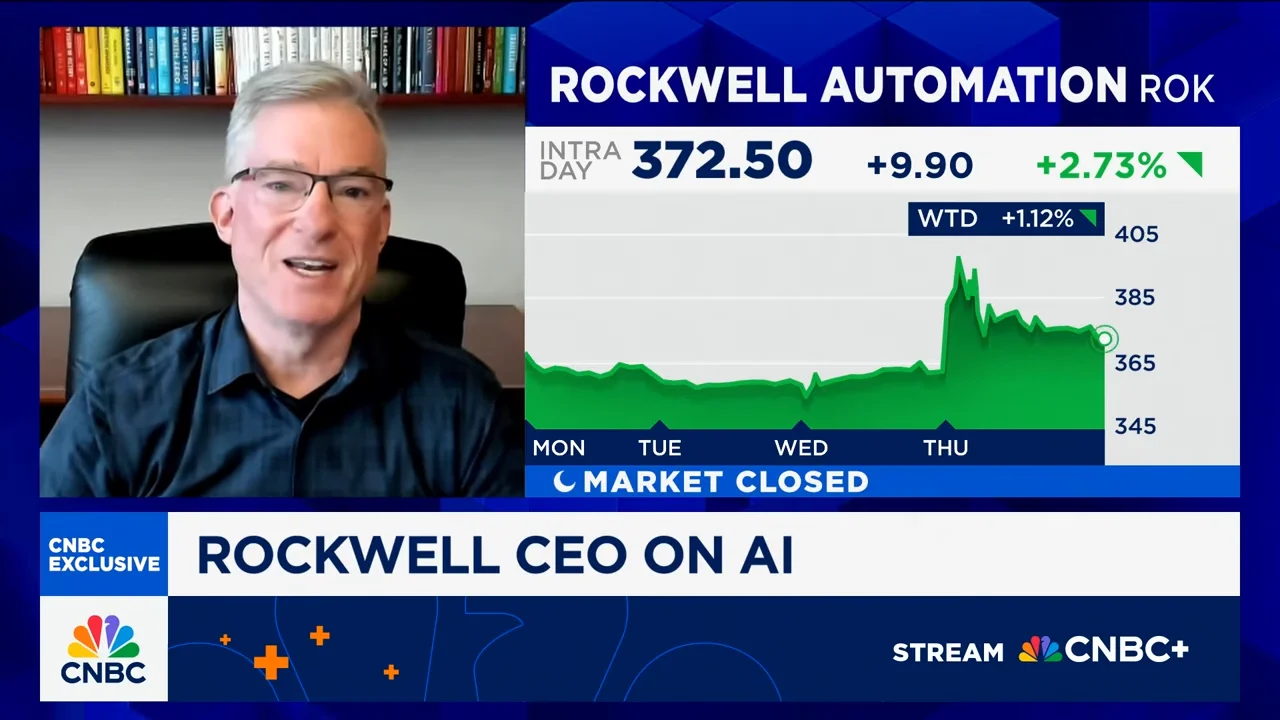- Published on
Rockwell Automation CEO Calls Humanoid Robots 'Overkill' for Most Factories


In a dose of pragmatic skepticism from one of the world's largest industrial automation firms, Rockwell Automation CEO Blake Moret called humanoid robots "overkill" for most current factory applications.
Speaking on CNBC Thursday after reporting strong fiscal 2026 guidance, Moret was asked about the future of robotics, particularly in light of Tesla's shareholder meeting and its focus on the Optimus humanoid robot.
While Moret acknowledged the market is "evolving," he offered a tempered view that contrasts sharply with the high-profile ambitions of humanoid developers.
"I think you know humanoids may have a role in in some applications," Moret stated. "But I see it as a little bit of uh overkill for a lot of the applications and factories today."
Instead, Moret framed Rockwell's strategy as one of integrated, task-specific automation rather than general-purpose bipedal robots. He noted Rockwell "got into mobile robots a couple years ago" not to replace human-like tasks, but "to complement the fixed automation that we're well known for."
For Rockwell, the goal is a "single cohesive system" where mobile robots and traditional line process controls interact seamlessly. This vision aligns with Moret's view on AI, which he said has a "primary opportunity to simplify the whole business of automation," citing simulation, scheduling, and maintenance as key areas already seeing an effect.
Moret's "overkill" comment provides a significant counterpoint to the strategies of other major industrial players. German supplier Schaeffler, for instance, has embarked on a multi-pronged humanoid strategy, running pilot programs with startups like Humanoid and signing a deep, multifaceted partnership to deploy thousands of robots from Neura Robotics.
This emerging landscape also includes software giants like SAP, which is building its "Embodied AI" project to create a common software "brain" for various hardware platforms.
Rockwell's stance highlights a central debate in the industry: whether the future of automation lies in making existing "rigid" systems more flexible and intelligent, or in deploying general-purpose humanoid platforms designed to navigate and manipulate environments built for humans. For now, the incumbent automation giant appears to be betting on the former.
Watch the interview here:
Share this article
Stay Ahead in Humanoid Robotics
Get the latest developments, breakthroughs, and insights in humanoid robotics — delivered straight to your inbox.